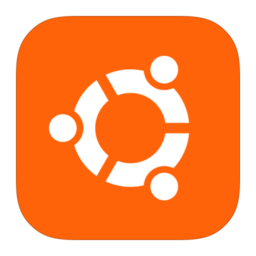-

How to Install Roundcube with Apache on Ubuntu Linux
Roundcube is a multilingual IMAP client offering a user-friendly interface for centralizing external emails like Google and Yahoo. The article provides a tutorial on how to install Roundcube on Ubuntu with support for Apache2, MariaDB, and PHP 7.2. It also highlights Roundcube’s features and performance, as well as its simple installation and upgrade procedures.
-

How to fix 400 Bad Request: Request Header or Cookie too Large with Nginx
The post provides solutions to the ‘Nginx 400 Bad Request Header or Cookies Too Large’ error. Suggested actions include adjusting Nginx’s buffer size to accommodate large cookies, amending the server configuration file about large client header buffers, and removing proxy_set_header from the proxy configuration block. If these steps fail, it recommends clearing browser cookies and…
-

How to Setup RainLoop with Nginx on Ubuntu Linux
RainLoop is a PHP-based web mail client that enables users to access multiple external mailboxes like Google and Yahoo from a single web interface. The article provides a tutorial on how to install RainLoop on Ubuntu with Nginx and PHP 7.2 support. With a modern interface and minimalistic requirements, RainLoop offers IMAP and SMTP protocols…
-

How to Install Zulip Chat Server on Ubuntu Linux
Zulip is an open-source, cross-platform chat and collaborative software with over 90 native integrations. It efficiently manages multiple concurrent chat sessions and operates on Windows, Mac OSX, and Linux systems. The software can be installed on a local server using Ubuntu local domain and provides options for creating a new Zulip organization, an admin account,…
-

How to Install RainLoop with Apache on Ubuntu Linux
RainLoop is a simple, web-based, PHP mail client that allows users to access external emails from one location. This tutorial demonstrates how to install RainLoop on Ubuntu with Apache2 and PHP 7.2 support, including how to install Apache2 HTTP Server and PHP 7.2, how to configure PHP settings, and how to download and set up…
-

How to Setup Phabricator with Nginx on Ubuntu Linux
Phabricator, an open-source version control platform, is highlighted as an efficient way to set up a self-hosted Git service. The content outlines how to install and configure Phabricator on Ubuntu servers, involving steps to install the Nginx HTTP Server and MariaDB Database Server, as well as PHP 7.2-FPM and related modules. Afterward, Phabricator and its…
-

How to Install Phabricator with Apache on Ubuntu Linux
Phabricator is an open-source version control platform offering robust features such as code review, repository hosting, bug tracking, and project management. Installing Phabricator involves a series of steps including setting up an Apache2 HTTP server and MariaDB database server, installing PHP 7.2 and related modules, and then downloading and installing Phabricator itself. The process also…
-

How to Install Vesta Host Control Panel on Ubuntu Linux
Vesta Host Control Panel is a free and efficient tool used for hosting websites and other features from a simple interface. It can run on low-resource servers and offers various services like mail servers and web domain hosting. Installation on Ubuntu requires setting up a local domain, downloading and running the Vesta installer script, and…
-

How to Install Subsonic Media Streamer on Ubuntu Linux
Subsonic is a Java based open-source media streamer. It allows users to stream media content like music and movies over the internet. Subsonic is compatible with all media formats streamed over HTTP or HTTPS. It has apps available for Android, iPhone, Windows Phone, Chrome, and more. To use it, Java 8 should be installed and…
-

How to Install Brackets Text Editor on Ubuntu Linux
Brackets is an open-source, modern text/code editor compatible with Windows, Mac OSX, and Linux systems, including Ubuntu. It enables easy browser design and features auto-completion, in-line editing, live preview, document formatting, and a file system browser, among others. Brackets can be downloaded and installed directly via a GitHub link or through Snap package management.
